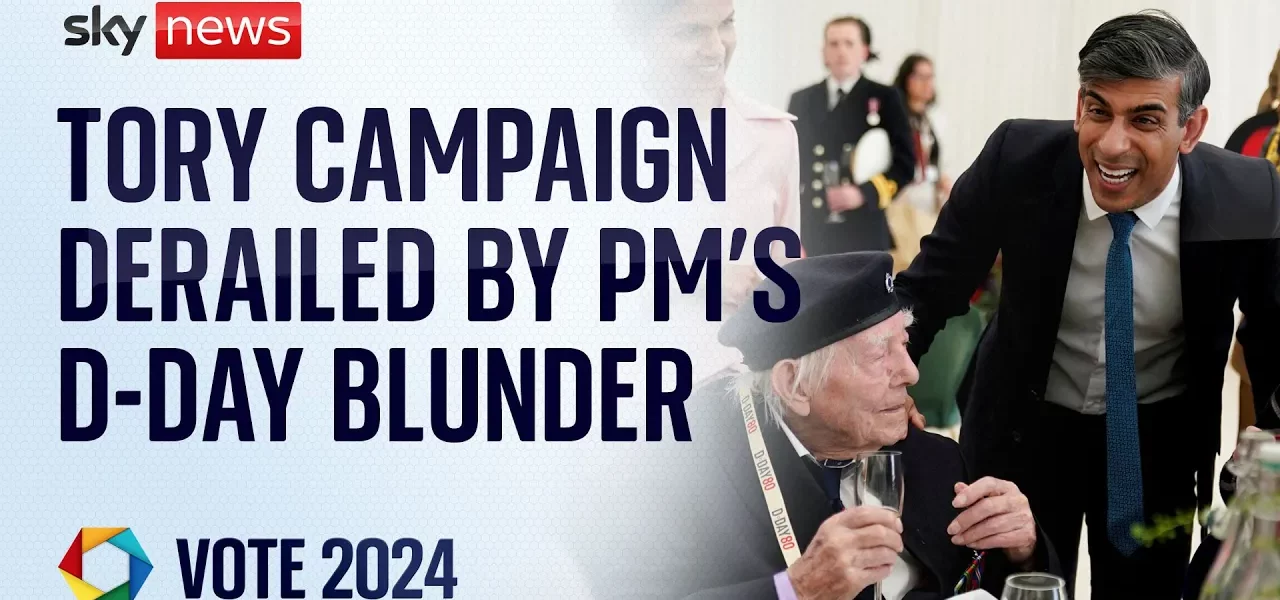Prime Minister’s Controversial Departure from D-Day Commemorations

This article delves into the recent controversy surrounding the Prime Minister’s early exit from the D-Day 80th anniversary events, exploring the implications for veterans and the political landscape amidst an ongoing election campaign.
Introduction
The 80th anniversary of D-Day marks a significant moment in history, honoring the sacrifices made by countless soldiers during World War II. However, this year’s commemorations have been overshadowed by the Prime Minister’s early departure from the events, which has sparked considerable backlash from veterans, political opponents, and the public alike. This article will explore the events leading up to this controversy, the reactions from various stakeholders, and the broader implications for leadership and patriotism in times of remembrance.
The Events Leading to Controversy
During the commemorative events held in Portsmouth and France, the Prime Minister attended several key activities designed to honor veterans. Despite his participation, he left before the international gathering of world leaders, raising questions about his priorities during such a poignant moment.
Itinerary and Early Departure
The itinerary for the D-Day events had been established weeks prior, coinciding with the onset of the general election campaign. The Prime Minister justified his early departure by stating that he had fulfilled his obligations to the British events and returned home ahead of the international leaders’ gathering.
Public Reaction
- Veterans expressed deep disappointment at the Prime Minister’s decision to leave early.
- Political opponents seized the opportunity to question the Prime Minister’s judgment and commitment to patriotism.
- Public sentiment reflected a sense of betrayal among those who had hoped for greater respect toward the sacrifices of veterans.
Key Voices: Veterans and Political Leaders
The voices of veterans like Ken Hay, a 98-year-old D-Day veteran, resonated strongly in the aftermath of the Prime Minister’s departure. Hay remarked that the Prime Minister had let the country down, emphasizing the weight of historical context during the commemorations.
Veteran Perspectives
Veterans shared their sentiments regarding the significance of the D-Day anniversary, highlighting the emotional weight it carries. Many felt that the Prime Minister’s actions undermined the integrity of the commemorative events.
Political Fallout
Within the Prime Minister’s party, reactions were mixed, with some candidates expressing embarrassment and frustration over his decision. The situation raised critical questions about leadership and the ability to prioritize national values over political ambitions.
The Broader Implications
The controversy surrounding the Prime Minister’s early departure has sparked discussions about patriotism, leadership, and the responsibilities of public figures during significant national events. This incident has broader implications for how leaders engage with historical narratives and the sacrifices made by those who served.
Patriotism in Political Leadership
Critics have argued that the Prime Minister’s actions reflect a disconnection from the values expected of a national leader, particularly during commemorations that honor those who fought for the country’s freedoms.
Future of Political Campaigns
As the general election campaign progresses, this incident could serve as a pivotal moment that influences public perception of the Prime Minister and his party. Key factors to consider include:
- How the Prime Minister addresses the concerns raised by veterans and the public.
- The potential impact on voter sentiment as the campaign unfolds.
- The ability of the opposition to leverage this controversy in their favor.
Conclusion
The Prime Minister’s early departure from the D-Day commemorations has ignited a firestorm of criticism, both from veterans and political opponents. This incident not only raises questions about judgment and priorities but also serves as a reminder of the responsibilities that come with leadership during times of national significance. As the nation reflects on the sacrifices of its heroes, it is essential for leaders to embody the values of respect and remembrance. Moving forward, it remains to be seen how this controversy will shape the political landscape and what lessons will be learned regarding the importance of honoring those who have fought for the nation’s freedoms.
For further insights on political leadership and commemoration events, check out our related articles on Veteran Voices and Politics and Patriotism.
“`




